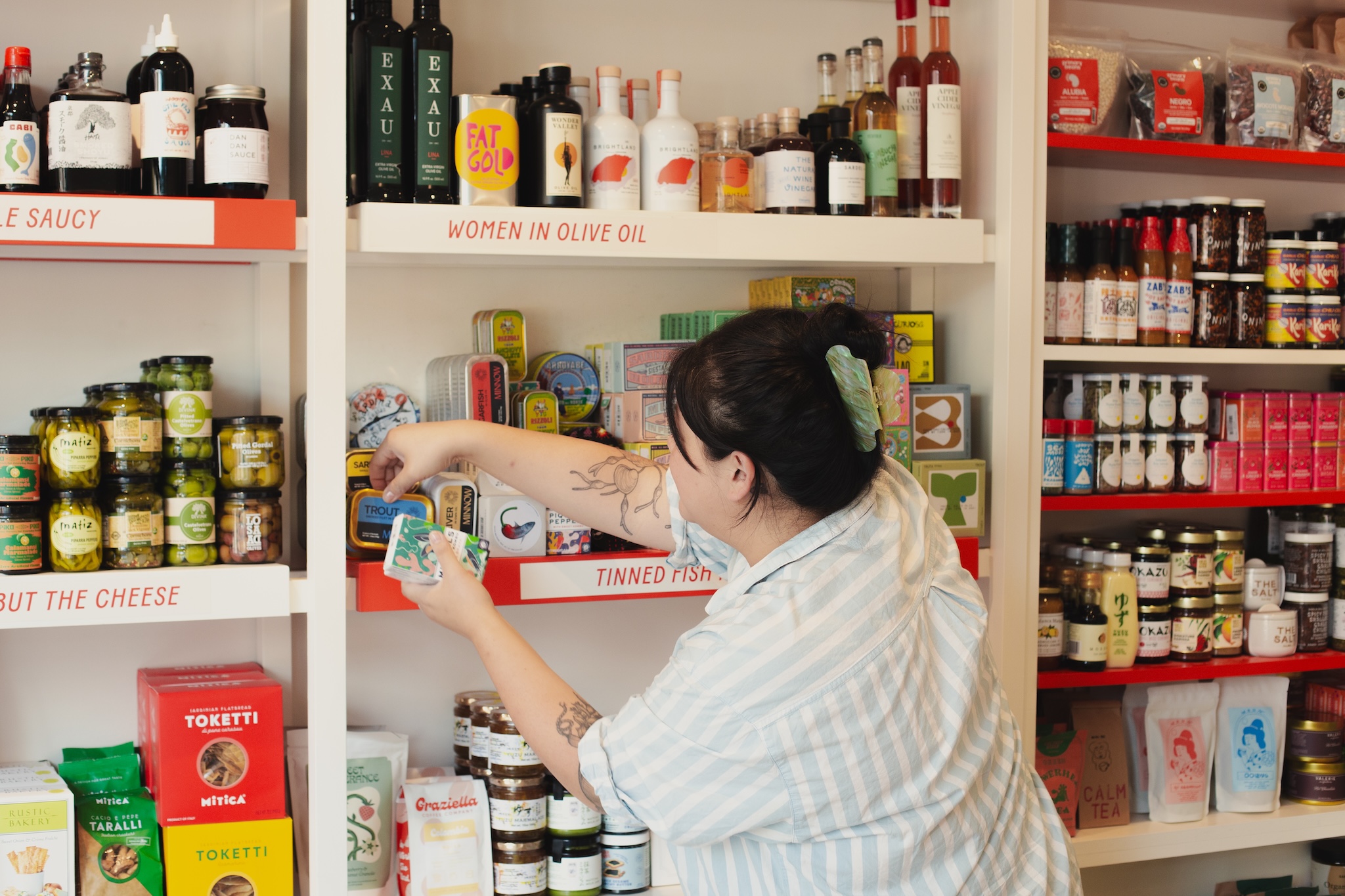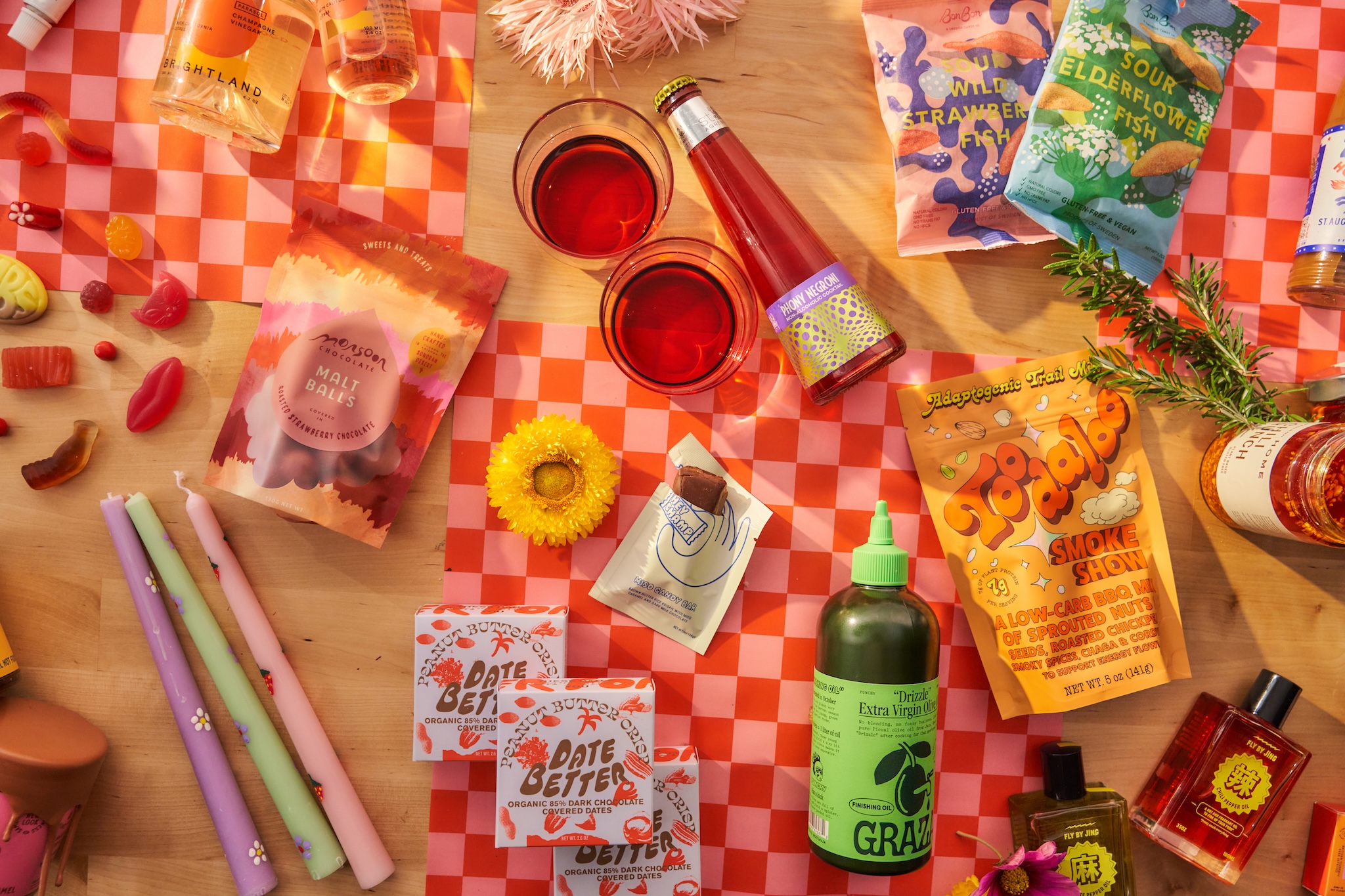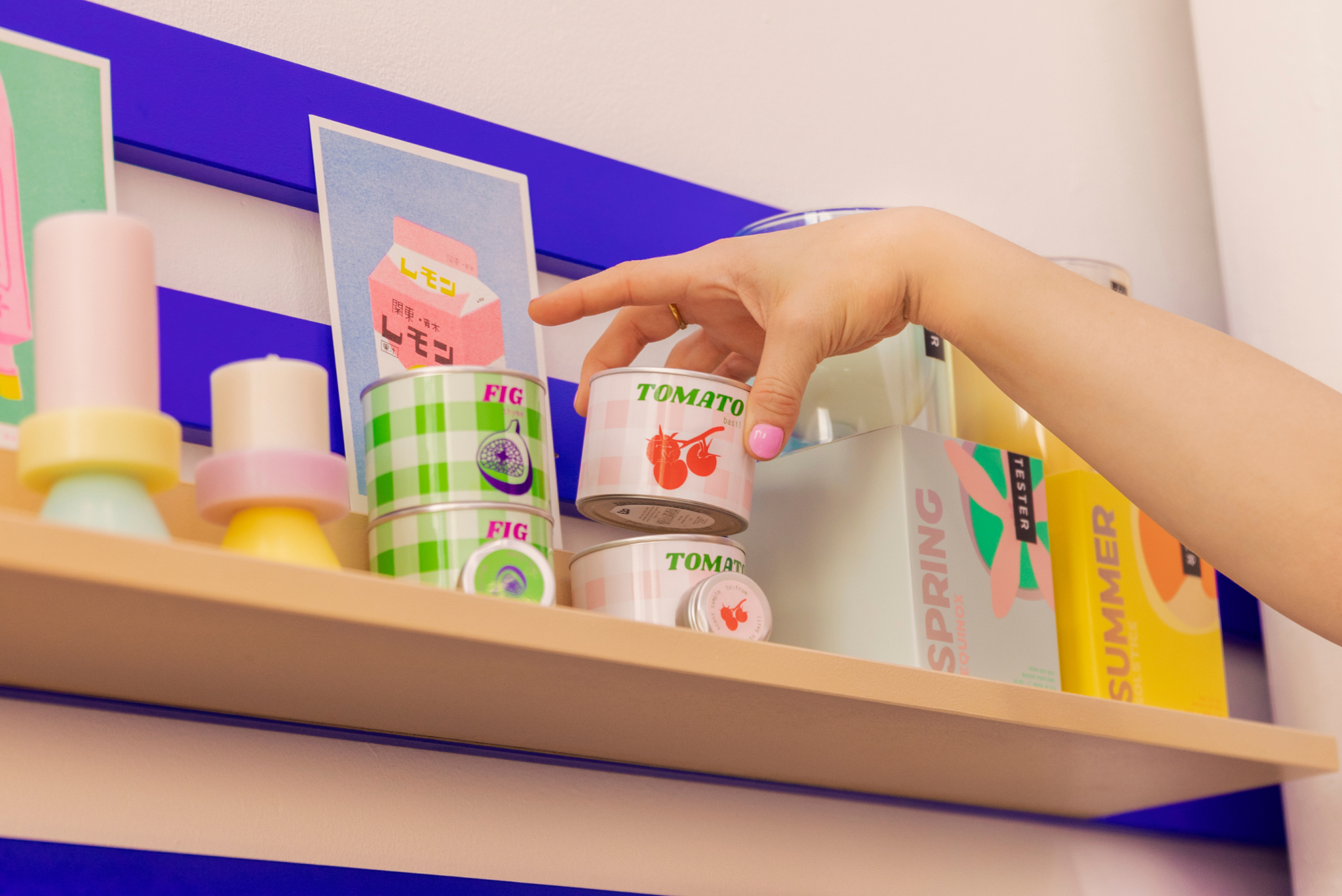

As a new retailer, you might have a particular vision for your future store. Imagine opening day. You unlock the door, walk through the space, and admire the shelves full of items you’ve thoughtfully selected. What are those products? Who made them? Starting a new business means making countless decisions, and perhaps the most important ones are: What will you sell, and how will you source your inventory?
Retail stores and online retailers usually get their products from wholesalers or through private label manufacturers … and some retailers do both. Let’s demystify these choices. We’ll explain the difference between private label and wholesale, and why a business might choose one or the other. Soon you’ll be placing orders and getting that much closer to stocking your store!
What is wholesale merchandise?
Buying wholesale means that merchandise is purchased in bulk at a low price per unit. Wholesalers produce a large number of items; retailers purchase inventory from wholesalers and then resell the products directly to consumers. This relationship is a cornerstone of commerce and is part of the traditional journey from manufacturer to consumer.
Advantages of buying wholesale
There are many benefits to buying wholesale, including financial considerations.
- Markup prices: When retailers resell wholesale products, they can usually mark items up 30% to 50% and make a solid profit.
- Steady inventory: Buying wholesale also means that retailers can get the products they need to stock their shop fast and can offer their customers a wide variety of items from different brands. There’s less risk of running out of inventory when your supplier is accustomed to selling large orders.
- Low per-unit cost: Buying bulk merchandise from wholesalers is also considerably lower in price than purchasing private-label merchandise.
- Existing demand: Some wholesalers are well-known brands, so there is already a demand in the marketplace. That means that retailers can buy products with a fair amount of confidence that they will sell in-store and won’t need to spend as much money advertising.
To find established independent brands that sell all kinds of products, take a look at Faire’s online wholesale platform. Opening orders come with free returns, which takes some risk out of that first purchase.
Key considerations for buying wholesale products
Before you dive into ordering wholesale, be sure to assess your business needs and priorities.
- Less creative input: If it’s important to you to have complete creative control over the products you sell or full exclusivity, wholesale may not be the right path.
- Other stores may stock the same items: If competing retailers buy from the same wholesaler as you, the market for your products may be saturated. That’s why Faire has created exclusivity as an option for retailers in the US and Canada, starting in March 2024. That means you’ll be able to become the exclusive seller of a wholesaler’s products within a geographic area.
- Inventory quantities: It’s vital that you choose a wholesale partner whose order minimums and costs suit your business plan. Placing large bulk orders can be a big investment in storage space and upfront costs. On Faire, retailers can filter by order minimums, so you can surface wholesalers that fit your budget (for instance, minimums of $200 or less, or $100 or less).
What is private-label merchandise?
Private-label merchandise are products that are branded and created exclusively for a particular retailer. That means the retailer has more control over the design and manufacturing process and the finished products. The finished product will have the retailer’s logo, name, and branding on it to sell in a store. For example, Costco’s Kirkland Signature brand and Trader Joe’s items are made specially for those companies and encompass all types of products. Many sellers on Amazon use this option to source products that they can then sell online with their own label.
What is the difference between white label and private label?
While private-label items are made exclusively for a specific retailer, and often designed by them, white-label items are premade generic products that a wholesaler sells to many different retailers. The retailers can have their company name and logo added to the generic products, but they don’t control the actual manufacturing or creation of the products.
Advantages of buying private-label products
If you have enough capital to purchase private-label products for your retail store, this may be a good option for your business.
- Brand building: The labels on your products will have your store’s unique logo and branding, which encourages loyalty and recognition from your customers.
- Creative control: If you have a vision for a specific type of item you’d like to sell, you can have it made to your specifications.
- Profit margins: With the right partner, purchasing private-label merchandise may mean higher profit margins and lower minimum-order quantities.
Key considerations for private-label sourcing
Private-label product sourcing comes with more costs and more responsibilities.
- Higher upfront costs: Private-label sourcing requires much more capital upfront than buying wholesale because you’re building a brand.
- Less brand awareness: Without the trusted name of a wholesale company, you’re building brand awareness from scratch. The retailer will need to invest in advertising and marketing to drum up interest in their products.
- Inventory challenges: Because the products are made for a specific retailer, there’s a higher risk of running out of inventory. The production speed tends to be slower as well, so you need to know what you plan on selling far in advance and hope it’s still relevant by the time the products are manufactured, packaged, and ready to sell to consumers.
Final thoughts
It’s important to remember that you don’t have to choose just one of these options. Many retailers sell a selection of their own branded products alongside products from other brands that are sourced through wholesalers. Whatever method you choose, you can stock your store with quality items and feel confident in your merchandise.
Are you a new retailer? Read more about Open with Faire and learn how to apply for up to $20,000, with 60-day payment terms, to stock your new shop.




